Follow these links to learn in detail about the ongoing research activities in department wise.
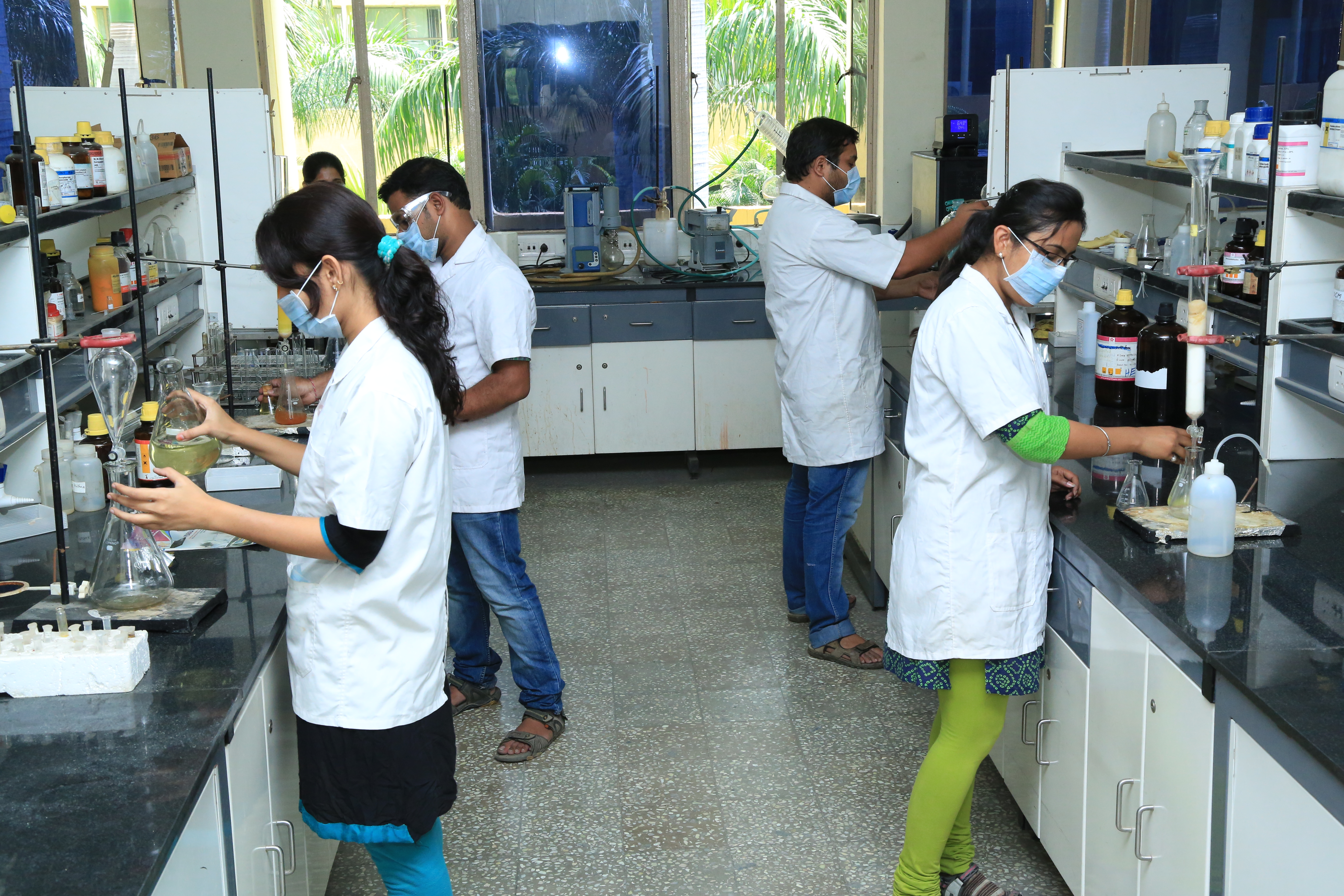
This department is working in multi-disciplinary research programmes including organic synthesis, medicinal, combinatorial and green chemistry including chemical biology. The main objective of the department is to design and synthesis of new chemical entities for anti-cancer, anti-inflammatory, anti-depressant, anti-tubercular and anti-microbial activity in the drug discovery programme. The targets are selected based on the structural information obtained from ligand-protein crystallographic structures, molecular modeling, novel molecular architecture, important biological activity and interesting mechanism of action. A number of newly synthesized molecules are tested for their biological profile by in vitro studies on selected cell lines particularly based on the biological targets. We are also devising new and alternative synthetic strategies for the construction of complex bioactive natural/unnatural molecules or building blocks or chiral molecules that are very useful in both basic and applied pharmaceutical sciences.
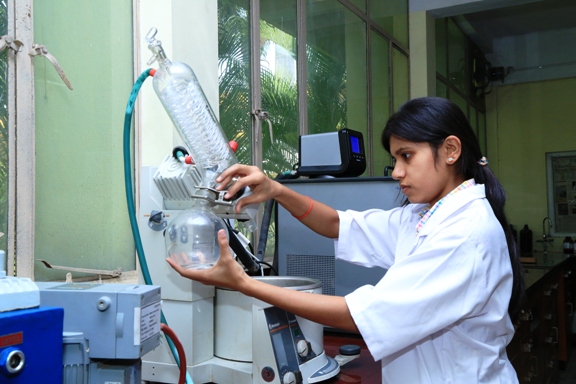
Development of newer, environmentally friendly and cost-effective process technologies
Manufacturing of active pharmaceutical ingredients (APIs) and key intermediates requires long sequence of chemical reactions and large quantities of solvents. Production of hazardous waste as side products in these processes, poses a great threat to the environment. Therefore, the process R&D focuses on developing faster, cheaper, efficient and more environmentally friendly processes.
With the above points in mind, the department of Process Chemistry has initiated research on the following areas.
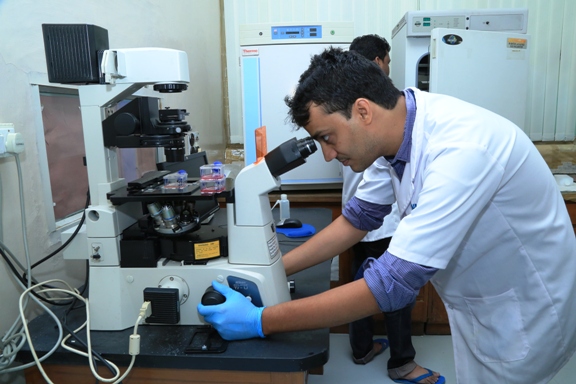
The main focus of this department is to offer extensive training in pharmacology and toxicology to both post graduate (MS Pharm) and Ph.D students. Our programme features close working relationships between
individual students and their faculty mentor, rich and diverse research opportunities, and individualized programs based on the needs of the students.
The research program is founded on a strong Ph.D graduate program in Pharmacology & Toxicology. Current areas of research investigation in the department are neuropharmacology especially in peripheral neuropathies, effects of diabetes and chemotherpay on the nervous system, Chronic inflammatory diseases such as rheumatoid arthritis, psoriasis, gout, cancer and inflammation/cancer induced bone loss.
The department is engaged in the following areas of research
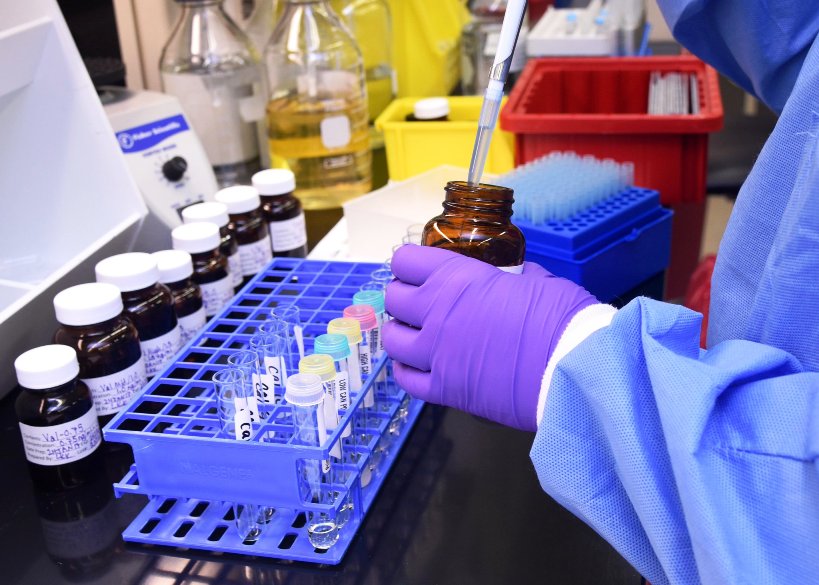
Regulatory toxicology can be known for its multi-disciplinary knowledge that aggregates pharmacology, Regulatory and Toxicology studies. It is mainly focused on assuring safety of drugs that can be done by toxicological studies by strictly following different regulatory guidelines. These studies are conducted according to the standardized protocols. Today, most of the pharmaceutical industries conducting the regulatory toxicology studies have become utmost important aspect in order to take the new chemical entities (NCEs) into clinical trials. The battery of regulatory toxicology and safety pharmacology studies need to be submitted to get the approval for clinical trials from concerned regulatory authorities. Currently in many pharmaceutical industries, there is a huge shortage of specialized scientist in regulatory toxicology areas. Therefore, there would be an ample of opportunities for the trained personnel to contribute to the growth of Indian pharmaceuticals industry. Further, there is a great need for Regulatory Toxicology experts in cosmetic industry to evaluate safety of various cosmetic formulations. Another important aspect needs immediate attention is safety evaluation of various nanotechnology based formulations. There are no set guidelines available to conduct the toxicological studies of nanoformulations
The department is engaged in the following areas of research

Development of newer, environmentally friendly and cost-effective process technologies
Manufacturing of active pharmaceutical ingredients (APIs) and key intermediates requires long sequence of chemical reactions and large quantities of solvents. Production of hazardous waste as side products in these processes, poses a great threat to the environment. Therefore, the process R&D focuses on developing faster, cheaper, efficient and more environmentally friendly processes.
With the above in mind, the department of Process Chemistry has initiated research on the following areas.
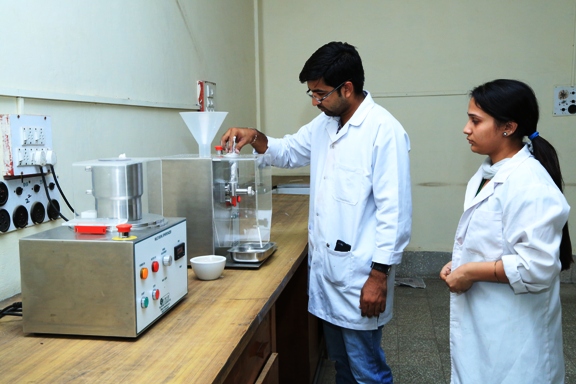
Research in the Pharmaceutics Department encompasses basic, applied, and clinical investigations in preformulation, drug delivery, and stability studies. The spacious laboratories are well equipped with state of art facilities like tablet punching and coating machine, FBD, Wurster coater, tray drier, spray drier, lyophilizer, granulator, etc to conduct both bench scale and pilot plant operations for conventional formulations. In addition, equipments like probe sonicators, homogenizers, microfluidizer, ultracentrifuges, zetasizer, facilitate undertaking research in the area of NDDS. Advanced software tools operating on higher end configuration computers are also provided to aid model development, simulation and prediction of various pharmaceutical process related operations.
The major thrust area of the pharmaceutics department is drug delivery. Recent efforts in the area of drug delivery include the development of Immediate Release systems, Modified drug delivery systems including Novel Drug Delivery Systems (NDDS), Targeted Drug Delivery systems like nanotechnology based drug delivery and ligand conjugate based delivery systems. A newly established SSPRG (Solid State Pharmaceutical Research Group) in the department has its exclusive focus on developing and characterizing various solid state pharmaceuticals like cocrystals, isomorph, polymorphs.
The department is engaged in the following areas of research
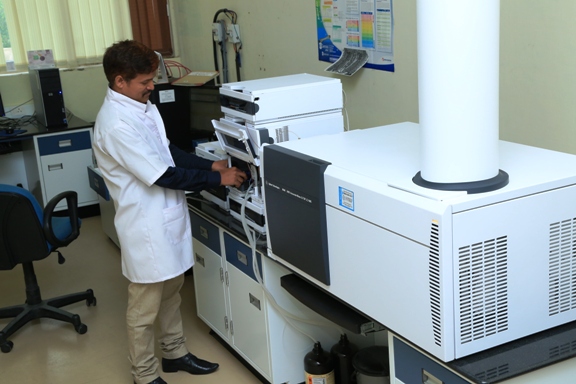
The principal remit of the department is the discovery, development and application of analytical methods and techniques relevant to pharmaceutical and biomedical sciences.
The department specializes in training pharmacists and chemists in developing their knowledge and problem solving skills in pharmaceutical analysis.
Research projects are currently under way in a range of general and specific analytical problems utilizing a variety of instrumental techniques. Chromatographic techniques are widely used with high-performance/Ultra performance liquid chromatography and gas chromatography being strongly to the fore and LC-MS/MS and GC-MS studies of drugs and drug metabolites.
Chemometric methods of analysis are used to give a deeper perspective to the results and to allow data to be compared more easily.
The department is engaged in the following areas of research